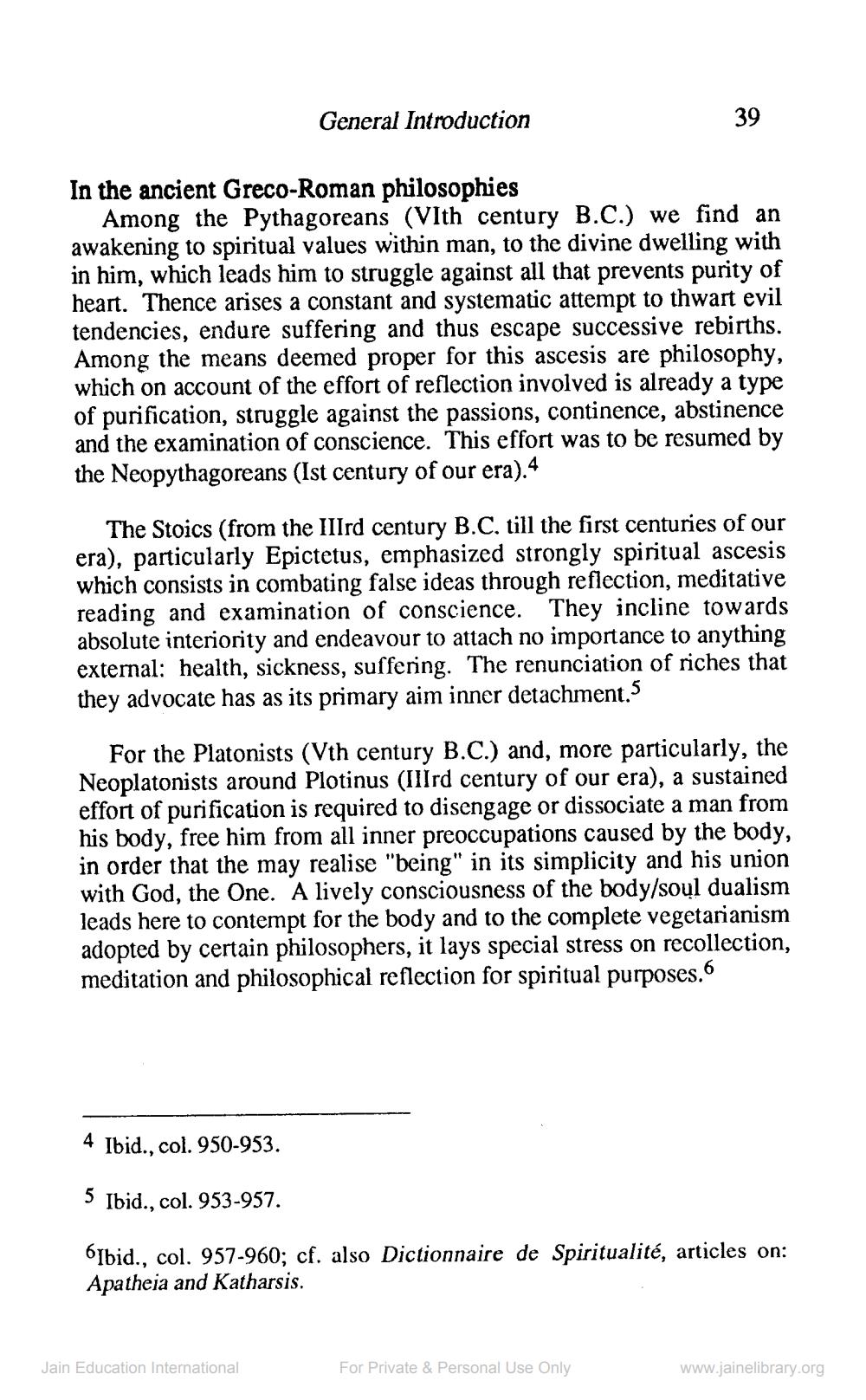________________
General Introduction
39
In the ancient Greco-Roman philosophies
Among the Pythagoreans (VIth century B.C.) we find an awakening to spiritual values within man, to the divine dwelling with in him, which leads him to struggle against all that prevents purity of heart. Thence arises a constant and systematic attempt to thwart evil tendencies, endure suffering and thus escape successive rebirths. Among the means deemed proper for this ascesis are philosophy, which on account of the effort of reflection involved is already a type of purification, struggle against the passions, continence, abstinence and the examination of conscience. This effort was to be resumed by the Neopythagoreans (Ist century of our era).
The Stoics (from the IIIrd century B.C. till the first centuries of our era), particularly Epictetus, emphasized strongly spiritual ascesis which consists in combating false ideas through reflection, meditative reading and examination of conscience. They incline towards absolute interiority and endeavour to attach no importance to anything external: health, sickness, suffering. The renunciation of riches that they advocate has as its primary aim inner detachment.S
For the Platonists (Vth century B.C.) and, more particularly, the Neoplatonists around Plotinus (IIIrd century of our era), a sustained effort of purification is required to disengage or dissociate a man from his body, free him from all inner preoccupations caused by the body, in order that the may realise "being" in its simplicity and his union with God, the One. A lively consciousness of the body/soul dualism leads here to contempt for the body and to the complete vegetarianism adopted by certain philosophers, it lays special stress on recollection, meditation and philosophical reflection for spiritual purposes.
4 Ibid., col. 950-953.
5 Ibid., col. 953-957.
6Ibid., col. 957-960; cf. also Dictionnaire de Spiritualité, articles on: Apatheia and Katharsis.
Jain Education International
For Private & Personal Use Only
www.jainelibrary.org




